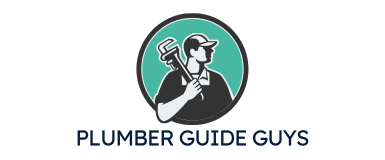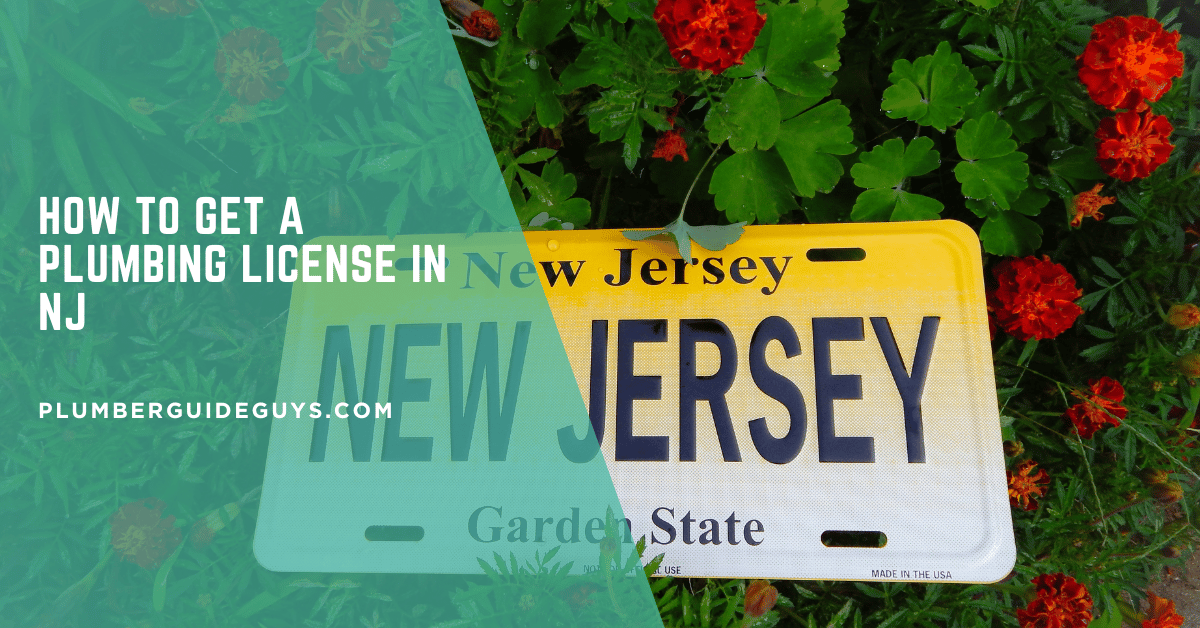Affiliate Disclosure
Plumber Guide Guys is a participant in the Amazon Services LLC Associates Program, an affiliate advertising program designed to provide a means for sites to earn advertising fees by advertising and linking to Amazon.
How to Get a Plumbing License in NJ? Did you know plumbers in New Jersey are in a booming industry? The U.S. Bureau of Labor Statistics says there are 473,400 plumbers across the country. New Jersey has 9,840, with a 6% growth expected from 2023 to 2033. If you’re thinking about getting a plumbing license in NJ, you’re on the right track.
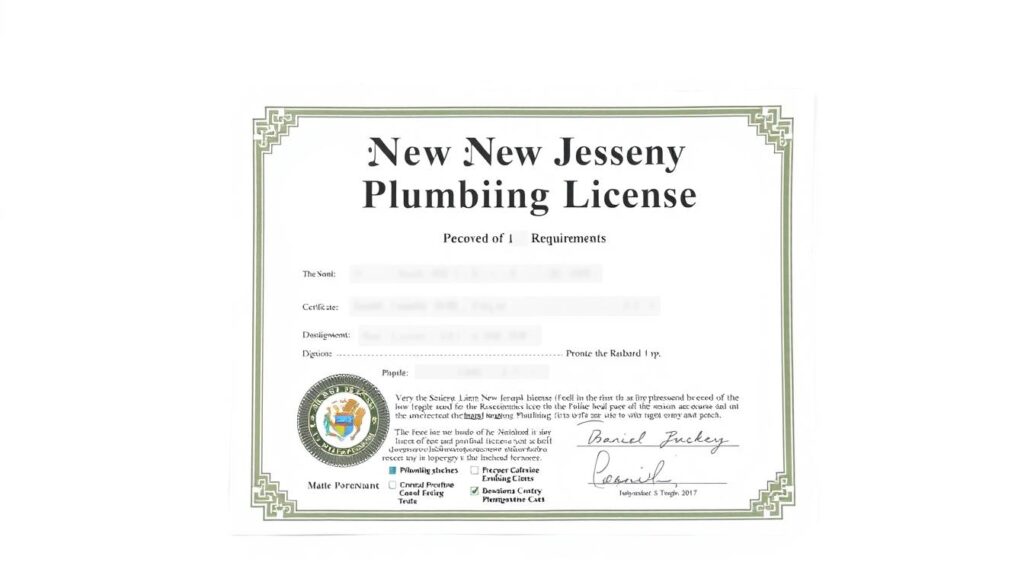
Getting a plumbing license in New Jersey is not just a legal formality. It’s your key to a stable and fulfilling career. The state has strict licensing rules to keep everyone safe and ensure top-notch plumbing services. Knowing the licensing process is vital, whether you’re new or have experience.
Starting your journey to become a licensed plumber in New Jersey involves several steps. You’ll need education, apprenticeship, exams, and ongoing learning. This guide will help you understand the whole process. It will show you how to meet the requirements and seize the opportunities in the plumbing trade.
Key Takeaways
- New Jersey plumbing industry shows strong growth.
- Licensing is mandatory for professional plumbers.
- Multiple career paths exist within the plumbing profession.
- Apprenticeship is a critical step in obtaining your license.
- Continuous learning is essential for career advancement.
Table of Contents
Understanding New Jersey Plumbing License Requirements
To become a licensed plumber in New Jersey, you must meet certain criteria. These ensure you are skilled and safe on the job. The njdca plumbing license process includes education, experience, and legal steps.
Starting your plumbing journey in New Jersey is a big step. It tests your skills and knowledge. Knowing what’s needed is key to getting your nj master plumber license.
Minimum Age and Education Prerequisites
To get a plumbing license in New Jersey, you must meet several requirements:
- Must be at least 21 years old
- High school diploma or equivalent (GED) is required
- Proof of United States citizenship or legal residency
Experience Requirements for Licensing
Practical experience is vital for a plumbing license. The state requires:
- Minimum of five years working in the plumbing trade
- Documented work history showing your skills
- Verifiable employment records from licensed contractors
Legal and Documentation Requirements
Getting your license involves legal steps and paperwork. You’ll need to submit:
- Completed njdca plumbing license application
- Proof of work experience
- Background check documents
- Verification of trade school or apprenticeship training
Being thorough and detailed in your application is important. It will help you get your nj master plumber license and start your career.
Types of Plumbing Licenses and Registrations in New Jersey
Understanding the plumbing licenses in New Jersey is key. The state board of examiners of master plumbers has a clear plan for plumbing credentials.
New Jersey has three main plumbing certifications:
- Apprentice Plumber Registration
- NJ Journeyman Plumber Certification
- Master Plumber License
Each level shows your growth as a plumber. You start with an apprentice registration. This lets you work under supervision while you learn.
| Certification Level | Key Requirements | Work Permissions |
|---|---|---|
| Apprentice | Minimum age 18, registered with board | Supervised work only |
| Journeyman | Complete apprenticeship, pass exam | Independent work permitted |
| Master Plumber | Journeyman experience, advanced exam | Full professional practice |
The state board of examiners of master plumbers has rules for each level. You need to meet certain education, experience, and test requirements to move up.
To grow in plumbing, follow New Jersey’s licensing steps. Make sure you have the right credentials at each career stage.
How to Get a Plumbing License in NJ
To become a licensed plumber in New Jersey, you need a clear plan and hard work. The journey includes steps like apprenticeship and mastering the trade. Each step is designed to help you gain the skills and knowledge needed.
Starting your plumbing apprentice program in New Jersey means understanding the key steps. You’ll go through tough training, hands-on experience, and getting certified.
Apprenticeship Registration Process
To begin your plumbing license journey in NJ, start with an apprenticeship. Here’s what you need to do:
- Register with the New Jersey State Board of Examiners of Plumbers
- Join an approved apprenticeship program
- Fill out the required paperwork
- Pay the initial registration fee
Journeyman Registration Steps
Once you finish your apprenticeship, you’ll become a journeyman plumber. Here’s what you need to do next:
- Document 8,000 hours of work experience
- Pass the journeyman exam
- Show proof of your apprenticeship
- Get the right liability insurance
Master Plumber License Application
Getting a master plumber license is the final step. It’s a big achievement that requires:
- At least four years as a journeyman
- Pass a detailed written exam
- Provide proof of ongoing education
- Show a lot of professional experience
By following these steps, you can get your plumbing license in New Jersey. It’s a great way to start a fulfilling career in this important field.
New Jersey Plumbing License Examination Details
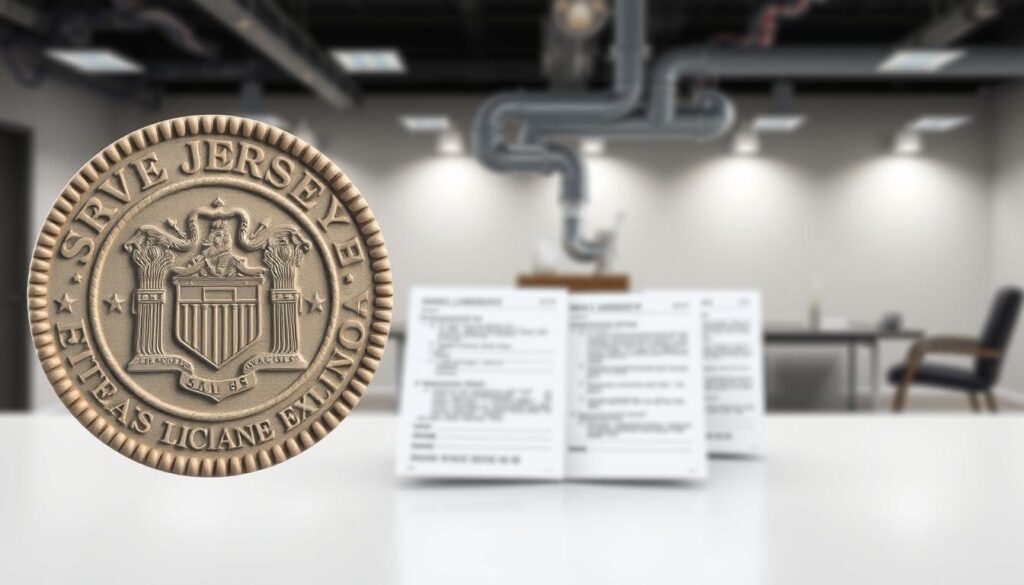
To get ready for the nj plumbing license exam, you need to know what it covers. The New Jersey State Board of Examiners of Master Plumbers works with PSI testing services. They make sure you have the skills and knowledge needed to be a pro.
The nj plumbing license exam has three main parts. Each part tests different skills:
- Plumbing Trade Section: Technical knowledge and practical skills
- Business and Law Section: Regulatory understanding and professional practices
- Practical Examination: Hands-on skill demonstration
To pass, you must score at least 70% in each section. This rule makes sure only the best get licensed.
| Exam Section | Focus Area | Passing Score |
|---|---|---|
| Plumbing Trade | Technical Skills | 70% |
| Business and Law | Regulations | 70% |
| Practical Exam | Skill Demonstration | 70% |
Getting ready for the nj plumbing license exam is very important. Use study materials, practice tests, and learn the exam format. This will help you pass and get your plumbing license.
Costs and Fees Associated with NJ Plumbing Licensure
Getting a plumbing contractor license in New Jersey costs money. You need to know about the fees you’ll face. This helps you prepare for your career.
Understanding the costs of getting licensed can be tough. But, breaking down the expenses makes planning easier.
Application and Examination Fees
There are several fees you’ll need to pay:
- Initial Application Fee: $100
- Master Plumber Exam Sections:
- Trades Exam: $83
- Business & Law Exam: $43
- Practical Exam: $103
- Initial License Fee: $160
Bond and Insurance Requirements
Plumbing contractors must get a mandatory surety bond of $3,000. This bond protects clients and shows your professionalism. You should also get liability insurance, which is a good idea for independent contractors.
License Renewal Costs
You’ll need to renew your license every two to three years. The renewal fee is $160. Keeping your license up to date lets you keep working in New Jersey.
It’s important to budget for these costs in your career planning. Each fee is an investment in your skills and future success.
Educational Programs and Training Options
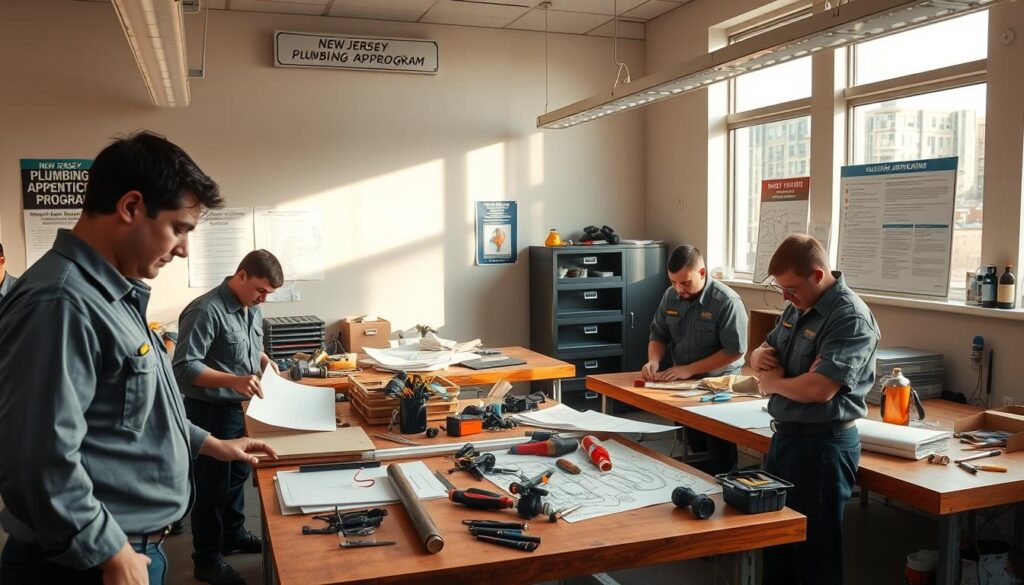
Starting a career in plumbing needs good education and training. New Jersey has many ways for future plumbers to learn. There are different plumbing apprentice programs all over the state.
Start your education at respected schools that teach plumbing:
- Passaic County Technical-Vocational Schools
- Essex County Community College
- New Jersey Association of Plumbing Heating Cooling Contractors
The plumbing apprentice program in New Jersey teaches important skills:
- How to install plumbing systems
- OSHA safety rules
- How to read blueprints
- State plumbing codes
- Advanced technical skills
Online learning has made it easier for plumbing students to learn. The e-learning Apprenticeship Academy offers flexible learning for those working and studying.
| Program Type | Duration | Key Focus Areas |
|---|---|---|
| Vocational School Program | 1-2 Years | Hands-on Technical Training |
| Community College Certificate | 2-3 Years | Comprehensive Technical Education |
| Apprenticeship Program | 4-5 Years | Paid On-Job Training |
Choosing the right plumbing apprentice program in New Jersey is important. Think about your career goals, how you learn best, and your schedule. Look into each option carefully to find the best one for you.
License Renewal and Continuing Education Requirements
Keeping your plumbing license up to date in NJ is important. The state has rules to help you stay current and skilled. It’s all about following a set process.
Your plumbing license renewal in NJ happens every two years. Here are some key things to remember:
- Licenses expire on June 30 of odd-numbered years
- Renewal fee is $160
- Five continuing education credits are mandatory per two-year period
To renew your plumbing license in NJ, you must:
- Keep track of your license’s expiration date
- Finish the required continuing education courses
- Apply for renewal before the deadline
- Pay the $160 renewal fee
Continuing education keeps you in the loop with new industry standards and tech. Approved providers offer courses on building codes, technical updates, and safety.
Being proactive about your license renewal shows you’re dedicated to your work.
If you don’t renew on time, you might face penalties or lose your license. Start planning early to avoid any career setbacks.
Career Opportunities and Salary Expectations
Getting a plumber license in New Jersey opens doors to great jobs with good pay. Plumbers in New Jersey can look forward to a fulfilling career with good money and job security.
The plumbing field has many paths for those who want to grow their skills. Recent data from the comprehensive plumber salary research shows New Jersey plumbers get paid well at every stage of their career.
Average Salaries by Plumbing Level
- Apprentice Plumbers: Average hourly rate of $19.85
- Journeyman Plumbers: Average hourly rate of $31.45
- Master Plumbers: Annual earnings up to $100,768
Job Growth Projections
The plumbing field is growing fast. The U.S. Bureau of Labor Statistics says plumbing jobs will grow by 5% in the next ten years. This means more job security for skilled plumbers who get their license in New Jersey.
Career Advancement Paths
Your plumbing career can grow in many ways:
- Apprentice Stage: Start with training and real-world experience
- Journeyman Level: Get better skills and earn more
- Master Plumber: Reach the top and start your own business
By always learning and specializing, you can earn more and grow in your plumbing career.
Conclusion
Becoming a licensed plumber in New Jersey takes hard work, smart planning, and a drive to grow professionally. Your path includes apprenticeships, training, and getting certified as a master plumber. Each step is key to mastering the trade.
To get a plumbing license in NJ, you must navigate through education, hands-on training, and exams. You’ll need to learn state laws, complete training hours, and pass tests to show your skills.
Plumbers in New Jersey have great job opportunities. With a license, you can find steady work, earn good pay, and even start your own business. Following the licensing steps can turn your passion for plumbing into a fulfilling career.
Now, it’s time to take action. Look for approved apprenticeships, study hard for exams, and keep learning. The plumbing field in New Jersey is open to those ready to invest in their skills and get certified.
